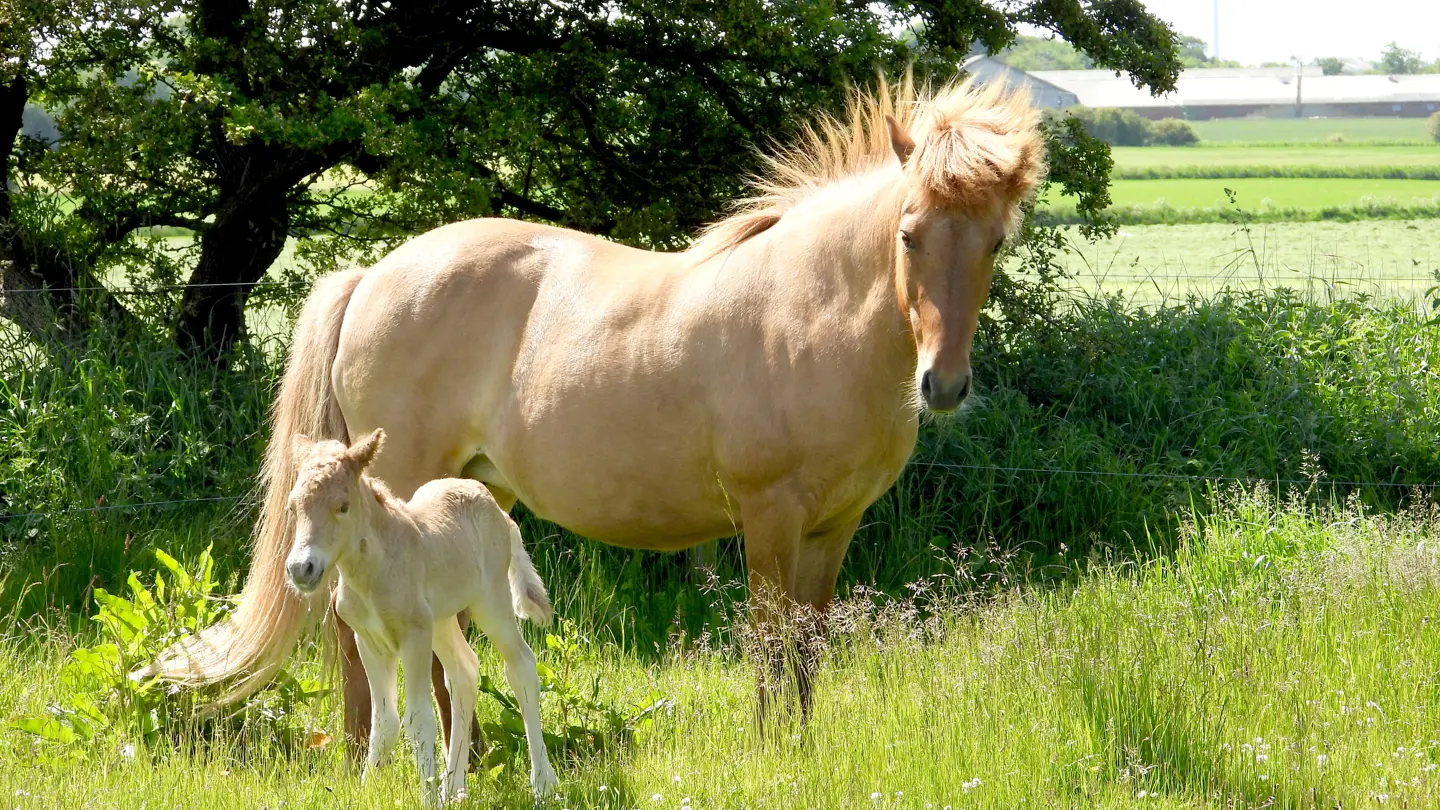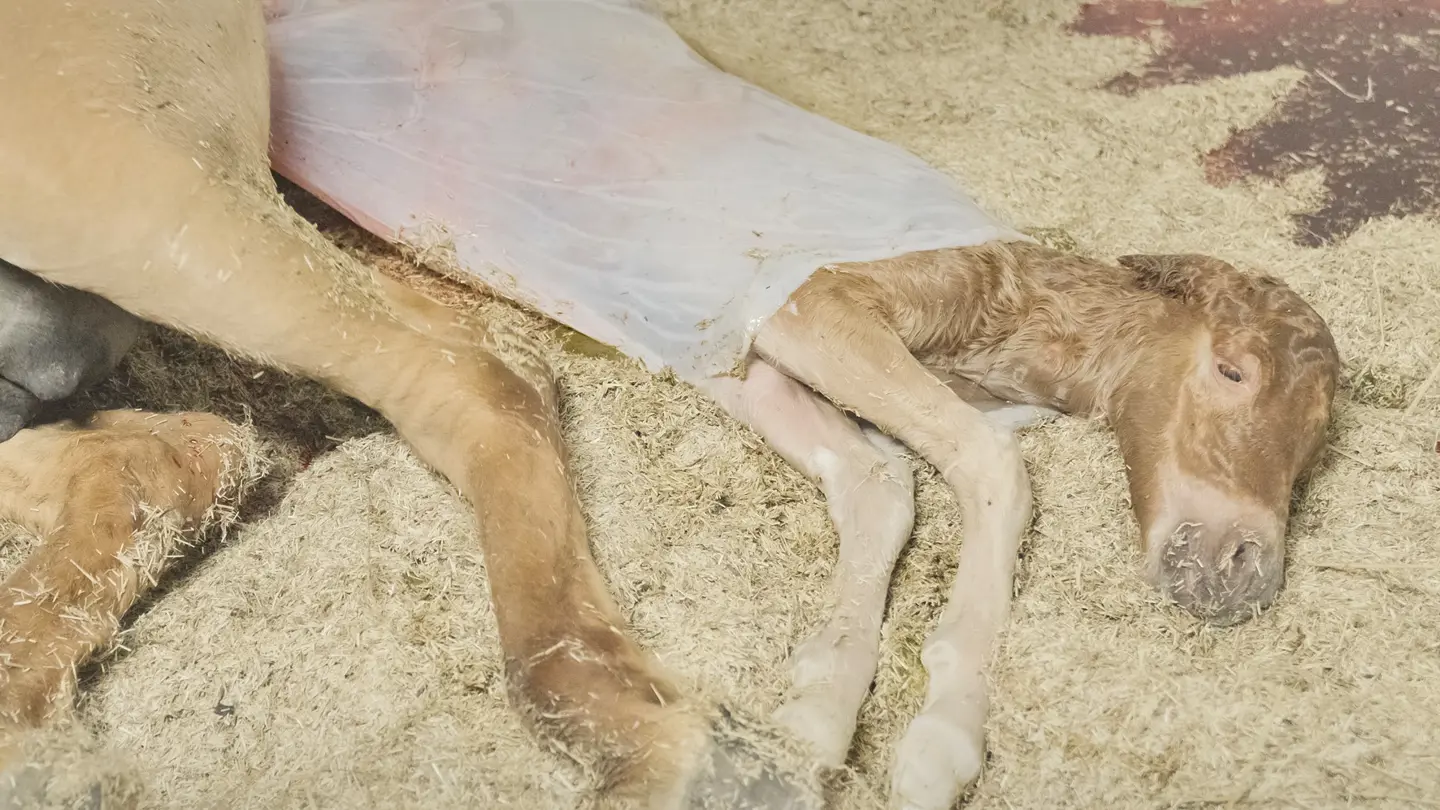
Historic foal birth sparks new hope for the critically endangered Faroese horse
A very special foal has just been born in Denmark — and it may help save one of the world's rarest horse breeds. For the first time in over a century, a Faroese horse has been born outside the Faroe Islands. This marks a huge step forward in the ongoing efforts to safeguard the small and critically endangered breed. As of today, only 83 Faroese horses remain, with all of them residing on the Faroe Islands.
Photos if not otherwise stated: Torsten Hansen
In recent years, the number of Faroese horses has started to decline. While breeders worked hard to save the breed from extinction in the 1960s, they’re now facing a new challenge: there are simply too few people on the islands who can keep horses. Too many foals remain unsold, and in some cases, healthy horses have even had to be put down because no one could take care of them.
A creative solution to a growing problem
The solution to this problem could be simple: allowing export so the horses can find homes abroad. But since horses born on the Faroe Islands cannot get horse passports they are not legally able to leave the islands. While no law explicitly prohibits the export of horses from the Faroe Islands, the real issue lies with the absence of a legal framework to issue passports to Faroese-born horses. This concern has created a bottleneck for the breed’s survival.
To get around this, the Faroese Horse Association (FFR) launched an ambitious project: They imported Icelandic mares — a closely related breed — from Denmark and used them as surrogate mothers. Embryos from Faroese horses were transferred to these mares, and when pregnancies were confirmed, the mares were returned to Denmark. Of the eight mares that received embryos, three successfully became in foal — and now the first foal has been born in Denmark. Because it was born in Denmark, this foal can get a passport, and with that, a future beyond the islands.

Collaboration and science
This project did not come out of nowhere. Since 2012, The Faroese Agricultural Agency and FFR have closely collaborated with NordGen, the Nordic Genetic Resource Center, which supports conservation of rare and native breeds across the Nordic region. NordGen has played a key role in documenting the breed, conducting genetic research, and developing long-term strategies to protect its future. In 2024, NordGen published a comprehensive action plan for the Faroese horse (see link below), outlining key strategies such as population growth, inbreeding management, and the use of reproductive technologies, such as embryo transfer, to expand the population beyond the Faroe Islands.
“This recent success is a direct result of that plan, and a clear sign that the strategy is working. This might sound like a small thing, but it is a significant breakthrough,” says Maria Kjetså, Senior Scientist at NordGen Farm Animals.
Why it matters
With a passport, this foal can now legally travel, be sold, and help start new herds of Faroese horses outside the islands. That could be a game-changer for the breed’s future. The Faroese horse is a small, sturdy, and historically important breed that has thrived on the islands for centuries. However, isolation on a remote group of islands comes with significant risks — from disease outbreaks to natural disasters — that could quickly wipe out the entire population.

That is why expanding the breed beyond the Faroe Islands is so important. This foal is the first real step in building a second home for the breed, securing its survival for generations to come and conserving this unique Nordic asset from disappearing forever.
“This is a historic day for the Faroese horse,” says Signa Kallsoy Ravnafoss, the chairman of the Faroese Horse Association. “For the first time, we can create a future for this incredible breed — not just on the Faroe Islands, but around the world.”
In addition to this foal, two more are expected to be born in Denmark from the embryo project, while twelve foals are anticipated on the Faroe Islands this year. A record number of foals born of the Faroese horse. NordGen and FFR plan to continue working together, utilising research, education, and new tools to protect and expand the Faroese horse population.